What “Never Again” Means to Me
After visiting Auschwitz on the eve of the Gaza war, a UCLA professor reflects on the protests roiling his campus.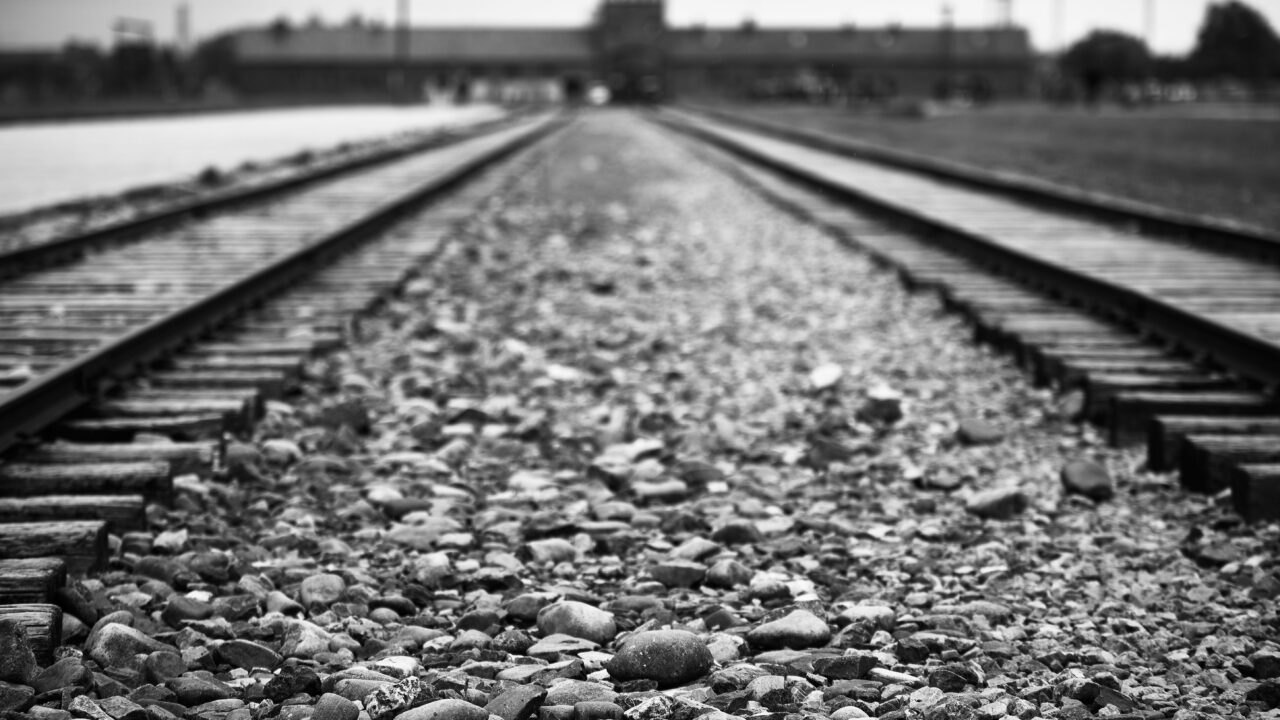 The site of the Auschwitz concentration camp in Oświęcim, Poland. Image: Adobe
The site of the Auschwitz concentration camp in Oświęcim, Poland. Image: Adobe
I have lived in the shadow of Auschwitz all my life. My father lost his entire family there, though he did not speak about it until shortly before his death, and even then, only briefly. This is not unusual for Holocaust survivors. My father had five children, also not unusual. He was trying, I suspect, to make up for his own murdered family. My youthful questions about that lost family — why, for example, I only had two grandparents, not four — did not receive answers. Eventually, I learned to stop asking. The silence was a presence in our home, hovering over our living room, over every family meal.
Until last year, I never visited Auschwitz. I had made multiple visits to Dachau and Theresienstadt to conduct academic research, and attended the major museums in Israel, the U.S., and Germany, as well as Jewish ghettos in several European countries where the Nazis and local populations committed horrific massacres. I had read the major historical works and scores of memoirs by Jewish and Roma survivors. I had seen all the documentaries. There were few details about the Holocaust I didn’t know. But for many decades, I put off going to its most infamous institution, where so much of my extended family had perished. When I finally went, in early October, I learned that I was prepared in some ways, not so much in others.
I had been prepared for the guide’s accounts of beatings, executions and various forms of degradations performed on Auschwitz prisoners. But something about the small size of the gas chamber where my grandfather, grandmother, aunts and uncles were killed startled and shook me. So, too, the urn filled with ashes of the victims. I found it difficult to move. I found Birkenau similarly overwhelming. The sheer size of it. Hundreds of thousands of people working each day in the heat and the cold. Walking along the train tracks, I wondered why I was alive, what purpose I’ve served on this planet. Can survivor’s guilt be multigenerational? Touring the barracks of Birkenau — the three-tiered wooden bunks, latrines, punishment cells, execution preparations and sites — I questioned the value of my professional accomplishments and life’s work as a teacher. I felt empty and depressed.
Walking along the train tracks, I wondered why I was alive, what purpose I’ve served on this planet. Can survivor’s guilt be multigenerational?
In the days that followed, the memories of Auschwitz faded, and life resumed its normal patterns. Then, on Oct. 7, my emotional life was assaulted once again by reports of the barbarous Hamas attacks on Israeli civilians. The reports of slaughter, rape and hostages made me outraged. This reaction remains to this day and that view has not changed in the months since the horrific attack. To me, it felt like a mini version of the Holocaust.
I unhesitatingly condemn it even while expressing my vigorous opposition to the almost immediate and continuing Israeli brutality and mass destruction of Gaza that followed. What Prime Minister Benjamin Netanyahu and his extreme rightist regime did with its saturation bombing and indifference to the civilian population affected me in similar ways to my very recent experience as a visitor to Auschwitz. Like millions of people throughout the world, and especially to a large percentage of the Jewish community, Israeli actions were heartbreaking. Unfortunately, they were neither unexpected nor surprising.
I have advocated for Palestinian liberation for as long as I can remember. I’ve taught about it, spoken publicly about it, and written about it, forcefully and unambiguously. I despise the occupation and the willful destruction of Palestinian dignity and lives. I’ve seen the Apartheid Wall and the degradation of individual Palestinians up close and heard first-personal accounts of beatings and torture. “Free Palestine,” to me, has always been a rightful demand.
For years I’ve been called a self-hating Jew and worse for this belief. I have always fiercely rejected this hateful appellation and the smug dismissals of AIPAC, the ADL and other establishment Jewish voices that label all opposition to Israel anti-Semitic. In instances where those advocating this opposition do veer into antisemitism, I call them out.
My politics include strong support for Palestinian resistance; including some violence as a justified response to Israeli colonialism and oppression. The rabid Jewish colonial settlers in the occupied territories, for example, who routinely subject Palestinians to terror and violence (and often murder) should expect responses in kind. That is legitimate resistance, different in kind from the actions of Hamas on Oct. 7.
The monstrous Israeli response following Oct. 7 has forced me to reflect deeply and anew about what it means to be a Jew. I have watched with increasing horror as thousands of innocent lives are taken throughout Gaza, including the maiming of children, women and men who will bear the physical and emotional scars for the remainder of their lives. I’ve heard all the debates about the use of the term genocide. Let the academics and lawyers continue to argue. For me, it’s the first genocide of the 21st century. It must be resisted by people of goodwill and decency all over the world, including on the university campus where I have worked for more than 40 years.
The Jewish tradition of resisting injustice must absolutely extend to the present-day Israeli genocide in Gaza.
To see Jews — the ancestors of those who were themselves victims of the greatest genocide of the 20th century — turn around and commit such inexcusable atrocities on fellow human beings has been agonizing. The images bring back to my fresh memories of Auschwitz and Birkenau, and call forth the identical emotions I felt for the murdered Jews, including my own family, only a few months ago.
Israel and its enablers have for too long enjoyed uncritical bipartisan support in the United States, buttressed by a largely fawning mainstream media. I’m heartened when I see images of young people gathering in protest, now especially on college and university campuses throughout the country. I think that’s especially the case for progressive Jews. I’m heartened to see young Jews joining the campus protests alongside Holocaust survivors, both first generation and subsequent generations. They understand as much that the Jewish tradition of resisting injustice must absolutely extend to the present-day Israeli genocide in Gaza. My emotionally fraught visit to Auschwitz has only reinforced this belief.
The recent campus crackdowns, with a few notable exceptions, reveal that high-ranking administrators have learned very little from the student free speech, ethnic studies and anti-war protests of earlier generations — efforts that I vigorously supported as a participant both as a Berkeley student and faculty member for 11 years. Instead of serious conversations and negotiations, they have called in the police, whose heavy-handed tactics once again reveal that they too have scarcely changed since the earlier student protest of the late 1960s and subsequent efforts against aggression in the U.S., Iraq and Afghanistan, and other social and political causes affecting national, local and campus life. Just as frightening are the large number of mainstream, and even supposedly “progressive,” media figures comparing the encampments to the Hitler Youth, to mob violence, to “spring panty raids.”
This unfounded slander runs dramatically counter to my observations at UCLA. The recently destroyed encampment there was peaceful, mostly respectful and fully within the long tradition of nonviolent student protest. I believe it was well within First Amendment protection and caused absolutely minimal disruption to campus activities. Graffiti on campus structures is not protected speech but is also relatively trivial in relation to the gravity of the issues presented. Hysterical ADL and legislative rhetoric ill suits the discursive atmosphere of the current moment.
The struggle against injustice transcends our individual lives, and we have an unyielding obligation to continue it in all its forms.
When the UCLA encampment was attacked by a violent group of mostly Jewish extremists, the campus response was not to protect the protestors, but to deploy overwhelming police force to further dismantle the encampment and exacerbate campus tensions, the outcome of which remains uncertain. This has disrupted normal university functions more than the protests themselves.
When I was at Auschwitz, I reflected about the necessity of collective and continued resistance to evil. There was some Jewish resistance during that time and it did save lives; most importantly, it revealed that human beings can fight back against even the worst forms of oppression. That vision has guided me throughout life, from the civil rights movement to the various antiwar movements, to just about every other social justice struggle I’ve experienced. Gaza is the latest. I will channel my reactions to Nazi genocide and Israeli genocide into written and oral communication, and strong and sustained action, even after the present hostilities are suspended. Let us act in a way that honors the memories of those murdered at Auschwitz.
That means, among many other things, working toward a free and democratic Palestine and a renewed commitment for justice for all people in that embattled region. It also means an understanding that this is a lifetime obligation; the struggle against injustice transcends our individual lives, and we have an unyielding obligation to continue it in all its forms. The arc of the moral universe is long. It may or may not bend toward justice, but we must never be indifferent to its direction.
Your support matters…Independent journalism is under threat and overshadowed by heavily funded mainstream media.
You can help level the playing field. Become a member.
Your tax-deductible contribution keeps us digging beneath the headlines to give you thought-provoking, investigative reporting and analysis that unearths what's really happening- without compromise.
Give today to support our courageous, independent journalists.

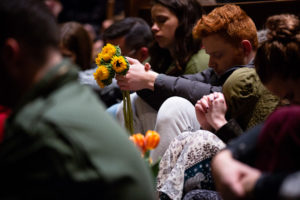
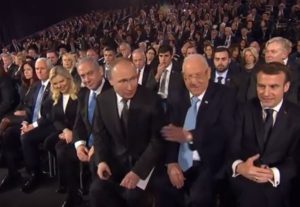
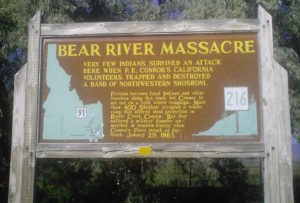

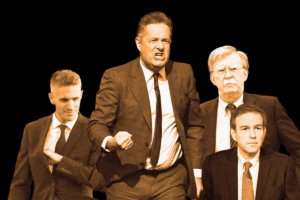



You need to be a supporter to comment.
There are currently no responses to this article.
Be the first to respond.